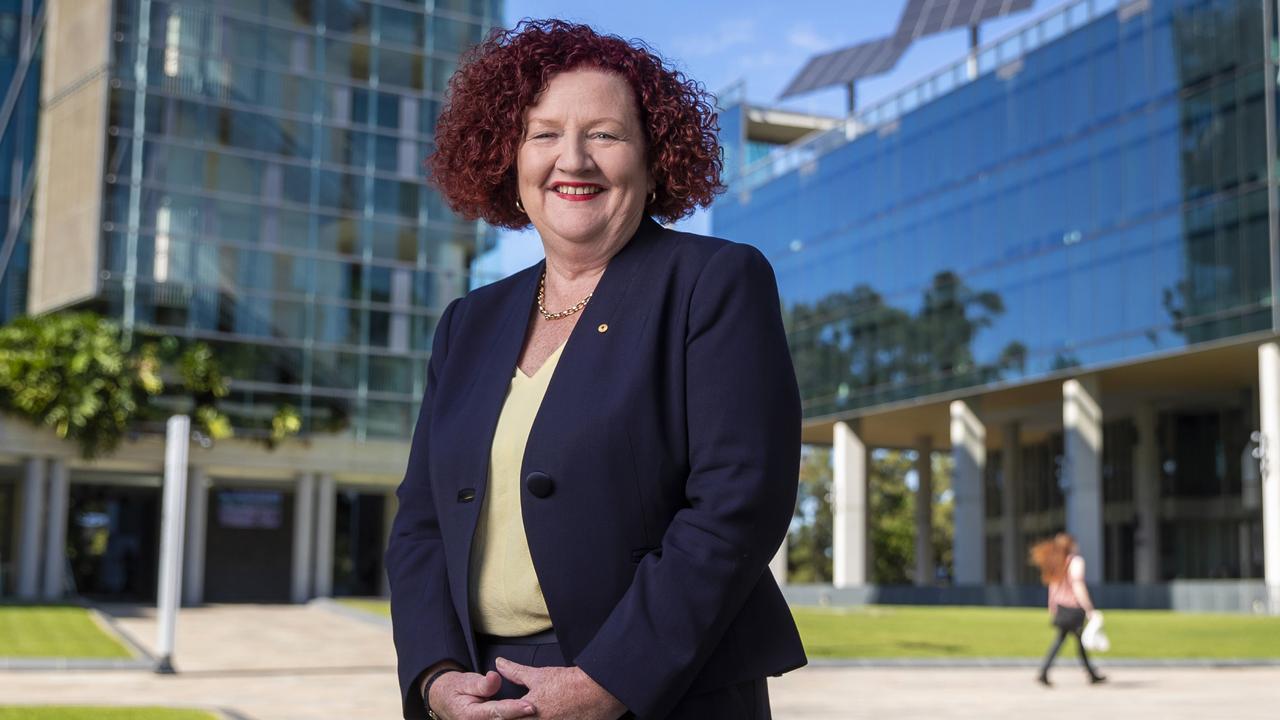Queensland universities big payday from foreign students
The state’s top universities still made a whopping $1.35 billion from foreign students last year despite being smashed by international border closures – but regional institutions copped a much bigger hit than those in the southeast.
Tertiary
Don't miss out on the headlines from Tertiary. Followed categories will be added to My News.
Queensland universities raked in more than $1.35 billion in revenue from foreign students last year, despite the disruption of international border closures.
It was down just slightly from the $1.48 billion the lucrative revenue stream of full-fare paying international students contributed in 2019, while it was still higher than just a few years ago.
The blow to the university sector’s coffers has been less than expected in the southeast, but some regional institutions copped a bigger hit.
While the University of Queensland saw a $30 million fall in cash from the overseas students, it was just a 4.4 per cent drop to $648 million.
By comparison Central Queensland University copped a $53 million, or 30 per cent, fall in revenue from international students.

Online programs to keep students engaged as well as attracting students from southern states are understood to have been used to limit the damage to the bottom line.
UQ is by far the biggest beneficiary, reaping in $648 million in fees in 2020, followed by QUT with $221 million and Griffith at $189 million.
Of the regional institutions, CQU still brought in the most cash from the overseas students with $122 million in revenue, followed by James Cook University’s $73.8 million, University of Southern Queensland on $48.7 million and University of the Sunshine Coast at $46 million.

CQU vice-chancellor Nick Klomp said the universities domestic enrolments were at record levels, but the revenue was not sufficient to operate in regional markets.
“International students are incredibly important to CQUniversity, they not only enrich our communities and the cultural diversity of our campuses but importantly, they provide the revenue to deliver on our mission to providing world-class tertiary education and training to regional communities,” Professor Klomp said.
“Assuming Governments are not about to address the funding shortfall, the very least they can do is to facilitate the Covid-safe return of international students to Queensland, to assist universities like ours to continue servicing communities that might not otherwise have access to quality education and training.”
UQ adapted online study programs in 2020, which enabled 7700 students to study offshore in the second semester, with those options continuing this year, and last week welcomed the Queensland Government proposed a phased approach to bringing back international students from January 2022.
“Our international students who are studying online from offshore have shown tremendous resilience and adaptability during the pandemic and we look forward to their return,” UQ vice-chancellor professor Deborah Terry said.
A Federal Education Department spokeswoman said while the pandemic had a significant impact on the higher education sector, its overall fundamentals remained strong.
“International students are an important part of the Australian community, and we look forward to welcoming them back as soon as possible,” she said.
“It is expected that international students will return gradually to Australia with small phased programs, potentially commencing in late 2021 and progressively increasing in 2022.”
Discussions are continuing between the federal and state governments.
The Queensland Government recently proposing a plan which would see up to 350 students enter the state each fortnight from January 2022, though two-weeks quarantine is still expected to be required at the Wellcamp quarantine facility in Toowoomba.






